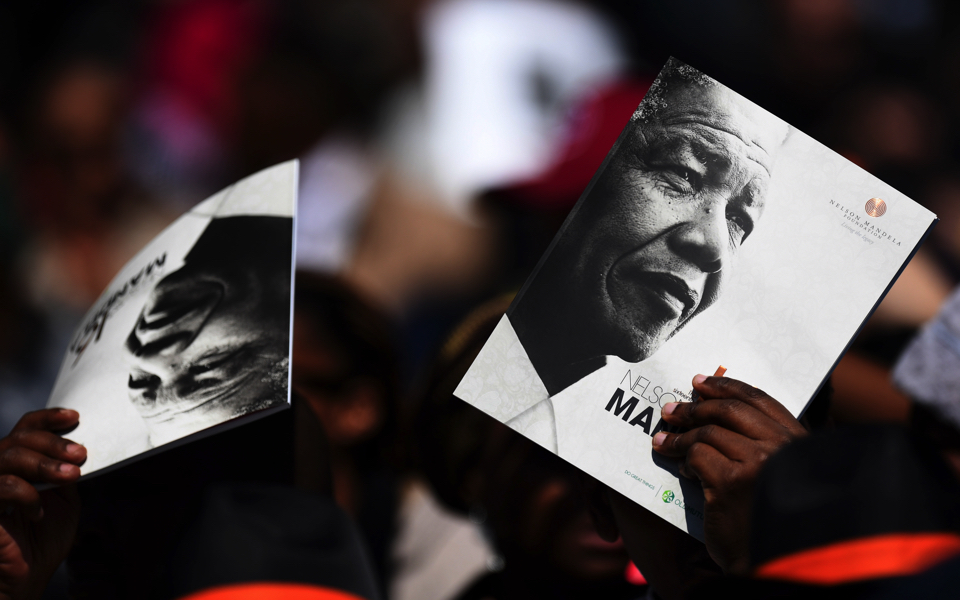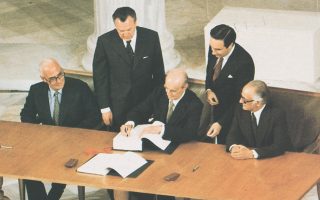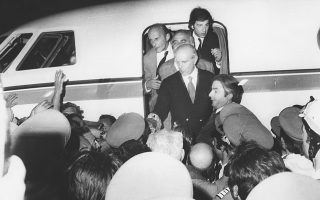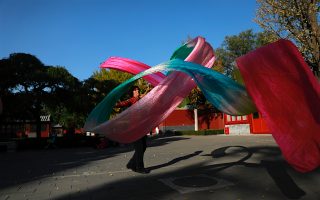Nelson Mandela and the gift of caring

The centennial of Nelson Mandela’s birthday finds his country free, independent and democratic but still struggling to reach his goal of social justice. Mandela’s reputation is firm as one of the greatest world leaders of the 20th century, but his legacy also faces criticism for many of South Africa’s current problems. Mandela himself was the first to stress his own weaknesses, but much of today’s criticism is unfair, anachronistic and possibly counterproductive.
Nelson Mandela was born on July 18, 1918, and died on December 5, 2013. He served one term as president of South Africa, between 1994 and 1999. The years since his retirement and death allow us a clearer perspective of the miracle that he and many others worked to achieve in South Africa. The years, however, also allow many to forget just how difficult it was to manage radical regime change without widespread violence. As South Africa moved toward a negotiated end to apartheid, without the white minority having suffered a military defeat, with its entire state apparatus intact, the black majority harbored great expectations for the quick end of injustice, for the redistribution of the country’s wealth. Forging a compromise demanded great sensitivity to the demands and fears of all sides.
Looking back at the time when Mandela was negotiating, on behalf of the African National Council and several other organizations, with President F.W. de Klerk, one feature of the negotiations and of future developments stands out: The protagonists cared about solving their country’s problems. They may have come to the table from different positions, with different pasts and with different strengths and weaknesses, but they wanted to achieve a united country that would provide freedom and security for all its citizens. From our perch in the filthy and selfish Twittersphere today we can see how the two negotiating teams put their country’s future first, beyond any personal or group interests. They invested in compromise and consensus, they did not opt for division, the tactic that is destroying the social fabric in many countries which did not have to deal with the disadvantages of South Africa in the 1990s. The fact that after his retirement Mandela’s successors did not make significant progress on crucial issues such as a just system for land redistribution, employment and inequality has encouraged the radicalization of some and resulted in increasing polarization; this, however, should not weigh on the reputations of those who gave the people the opportunity to hope. Mandela stands out like a mountain in South Africa’s history and it is natural that he should draw the sunshine of praise and the clouds of criticism; but focusing on one man raises the danger of people not doing all that they can to remedy the situation. This is where the criticism of him can be counterproductive. Mandela would not have sat back and blamed anyone – he would have worked for solutions.
This brings us back to Nelson Mandela’s fundamental strength and the core of his legacy. He cared about his people, about his country, about the world. He felt a duty and a need to make things better and he continually measured himself against this ambition. “A fundamental concern for others in our individual and community lives would go a long way in making the world the better place we so passionately dreamt of,” he said in a speech in 2008.
Nelson Mandela would have been hurt not by criticism of him but by the way that his country’s government has squandered many opportunities in the past years, while much of Africa is showing significant progress. He would have urged his successors to put aside their own ambitions and emotions and work for the common good, as he did.
Those who criticize his legacy today should note his many achievements and remember the difficulties he faced. Looking around – at their neighborhood, their country and the world – they should consider the damage wrought by the absence of people with the magnificence and the humility of Nelson Mandela. Mandela often said that he was inspired by Greek ideals and had noted the lessons of Greek tragedy.
If only the next generations of Greeks (along with citizens of all nations) could be inspired by him in turn.





